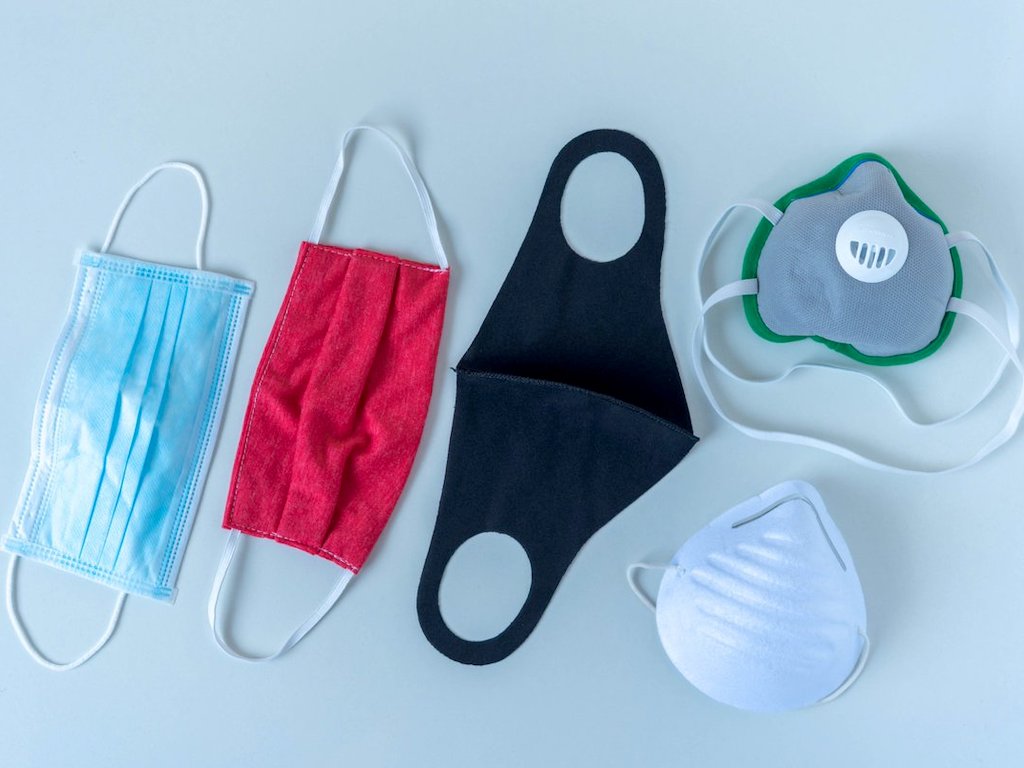3 Mins Read
A new study has found that whilst masks are one of the most effective ways to reduce the transmission of the coronavirus, not all kinds of face-coverings are equal. Researchers from Duke University found that fitted N95 respirator masks performed the best, followed by surgical face masks and cotton masks that contain a layer of synthetic material in the middle. Neck gaiters (known to many as buffs) and bandanas, on the other hand, were found to have less efficacy in filtering respiratory droplets.
Published in the journal Science Advances, the new study examined the effectiveness of 14 different face-coverings when it comes to filtering respiratory droplets, which is the main route by which the coronavirus is transmitted. The scientists used a low-cost measurement setup, which allowed for rapid evaluation of each masks’ performance when it comes to filtering out expelled droplets during speech, sneezing or coughing.
Fitted N95 respirator masks performed the best out of the group, while standard surgical masks and cotton masks that encompass a layer of synthetic material were also found to be effective. However, other mask alternatives made using stretchy fabrics, such as neck fleeces or bandanas, which are often used by runners, were found to “offer very little protection”.
According to the study, the gaiter mask in fact produced 10% more droplets compared to when a person was not wearing a mask.
Speaking on a press call about their findings about the ineffectiveness of neck gaiters, Martin Fischer, one of the authors of the paper said: “We actually saw what seemed to be an increase in the particle numbers. We attribute that to the mesh fabric actually dispersing some of those droplets.”
However, not all studies have confirmed that wearing neck gaiters and bandanas are completely ineffective. The study’s authors noted that the gaiter was only tested on a single person, and the neck gaiter used was very thin and made of a mixture of 8% spandex and 92% polyester. It could be that other stretchy face-coverings made with different fibres or thickness could have produced different effects.
A subsequent study by researchers from Virginia Tech, for instance, found that 100% polyester neck gaiters can provide a similar level of protection to other cloth-based face-coverings that have been recommended by the U.S. Centers for Disease Control (CDC), and also noted that gaiters that have been doubled-over can provide more protection than single-layered ones.
I think the general consensus worldwide is that masks work and everyone should wear a mask. Of course we are trying to shed light on which ones are truly covering and providing barriers.
Dr. Eric Westman
What the Duke University researchers stressed, however, is that ultimately, masks are effective and should be worn in order to protect yourself and those around you.
“I think the general consensus worldwide is that masks work and everyone should wear a mask. Of course we are trying to shed light on which ones are truly covering and providing barriers,” said Dr. Eric Westman, one of the authors of the study.
“It seems obvious to me that you are also protecting yourself when you are wearing it, [and] you are protecting other people from you, if you don’t know you have the infection.”
Lead image courtesy of iStock.




